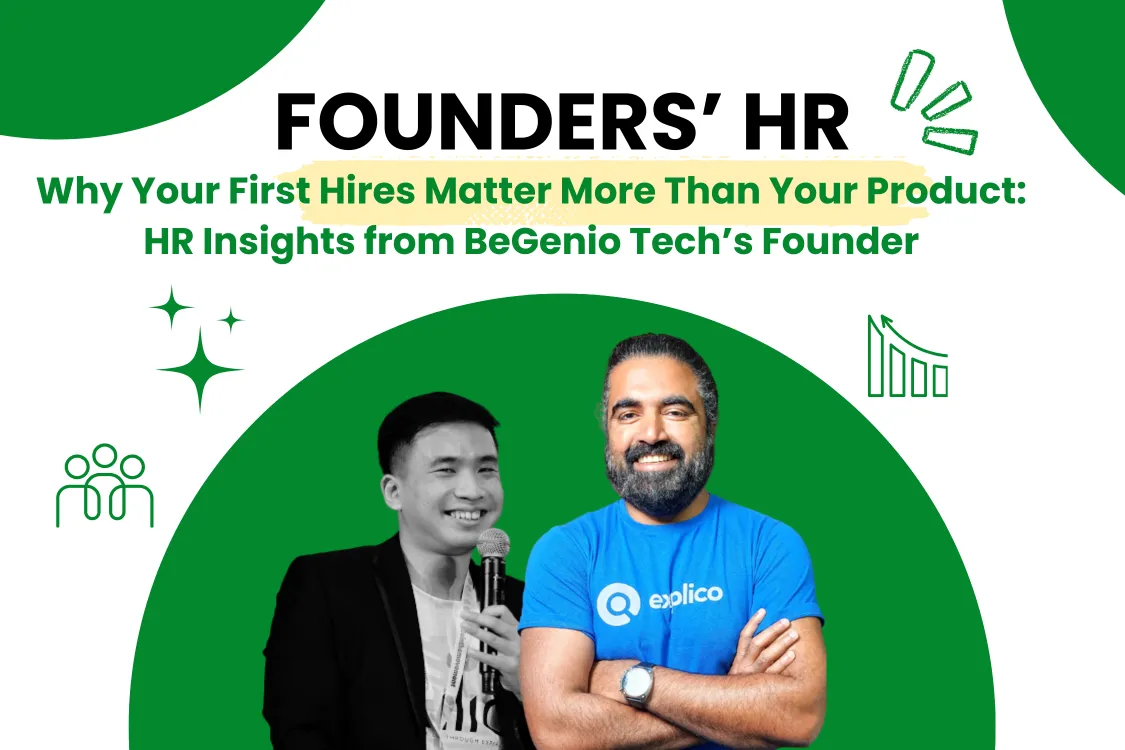
Why Your First Hires Matter More Than Your Product: HR Insights from BeGenio Tech’s Founder
Startups are built on bold ideas—but they’re scaled by people. In the latest episode of Founders HR by Skilio, Felix sat down with Sandesh Shetty, the co-founder of BeGenio Tech and creator of the innovative math-based learning game Race to Infinity, to unpack what it really takes to build strong teams from the ground up.
While the conversation centered on Sandesh’s founding journey, what emerged was a masterclass in people management—a must-read for HR professionals working with or within early-stage startups.
From Process-Driven to People-Driven: A Shift in Mindset
Coming from a corporate background, Sandesh experienced firsthand the stark difference between how HR functions in large organizations versus nimble startups. “In corporates, it’s all about process. People come and go—it doesn’t shake the system,” he said. “But in a startup, people define your success.”
Hiring for Attitude Over Experience
One of the most powerful insights Sandesh shared was how traditional hiring metrics often fall short in startup environments. A highly credentialed executive might fail in a startup due to lack of adaptability, while a fresh graduate with the right mindset could thrive.
“Some of the best people I’ve worked with were interns,” Sandesh said. “Their adaptability and attitude made all the difference.”
Managing Remote Teams: More Than Just Tools
BeGenio Tech operates fully remotely, with collaborators across continents. While tools like Trello, WhatsApp, and email keep work on track, the challenge lies in helping remote team members feel like they’re part of a real team.
“It’s just like online school vs. going to school—remote workers miss out on spontaneous bonding moments,” Sandesh shared.
Firing and Mis-hires: A Reality Check
When a new hire doesn’t work out, the decision to let them go isn’t taken lightly. Sandesh emphasized giving people room to grow before resorting to parting ways—and being supportive if it comes to that.
“If someone isn’t enjoying the environment, that’s the biggest red flag,” he noted.
Founder Vulnerability as a Leadership Superpower
Throughout the conversation, Sandesh was honest about the uncertainties and constant learning founders go through. That same honesty, he believes, should be extended to potential hires.
“Be honest. Don’t just sell the vision—also share the challenges. If they still want to join, you’ve found someone great.”
Consolidated HR Takeaways & Tips
Here’s a one-stop summary of actionable insights for HR professionals supporting early-stage startups:
Hiring & Recruitment
Hire for attitude, not just experience. A less experienced candidate with high adaptability can outperform a seasoned one who resists change.
Use gut feeling—but balance it with structure. Introduce simple, founder-friendly interview scorecards to support intuitive decision-making.
Be transparent during hiring. Clearly communicate the startup’s realities—uncertainty, lean resources, evolving roles.
Assess for startup readiness. Ask candidates about their experience leading ambiguous projects or working in flat, fast-paced teams.
Cultural fit matters. In small teams, personal chemistry and communication style are just as important as qualifications.
Onboarding & Team Integration
Remote employees need connection, not just communication. Build rituals like virtual bonding games, open feedback sessions, and informal check-ins.
Foster a shared sense of purpose. Encourage founders to communicate openly and frequently about progress, challenges, and changes.
Retention & Performance
Don’t over-process early-stage HR. Focus on people, not paperwork—processes can come later when the team grows.
Create light performance frameworks. Monthly 1:1s can go a long way in catching misalignments early without overburdening the team.
Be proactive about culture drift in remote teams. Treat culture-building like a product—something to be designed, tested, and improved.
Handle mis-hires with empathy. Try mentoring and realignment first. If it still doesn’t work, have honest, supportive conversations.
Leadership & Founder Mindset
Coach founders to embrace vulnerability. Founders admitting they don’t have all the answers builds psychological safety.
Position titles mean little in the early days. Everyone—including the founder—should see themselves as part of a builder team.
Don’t sell just the dream—explain the path. Candidates deserve to know both the vision and the grind needed to get there.

